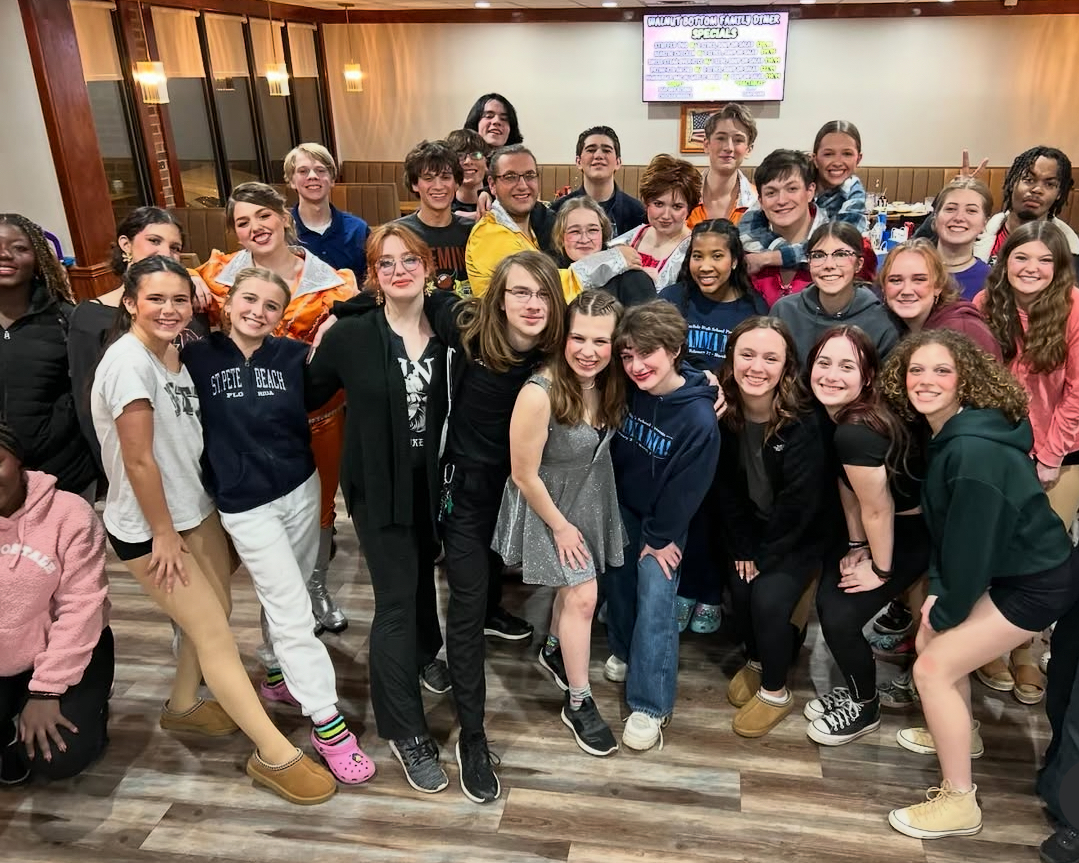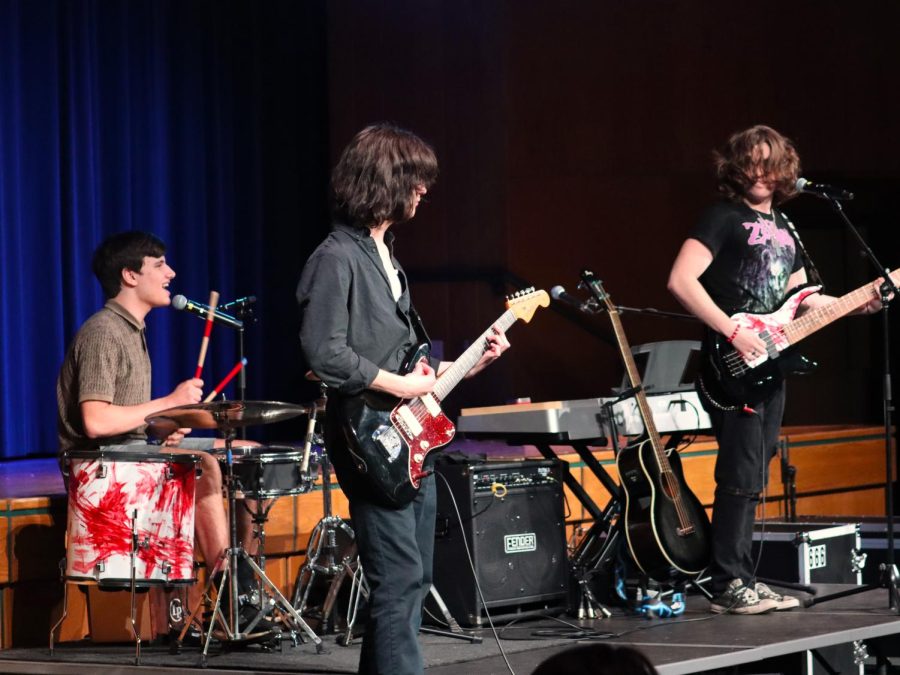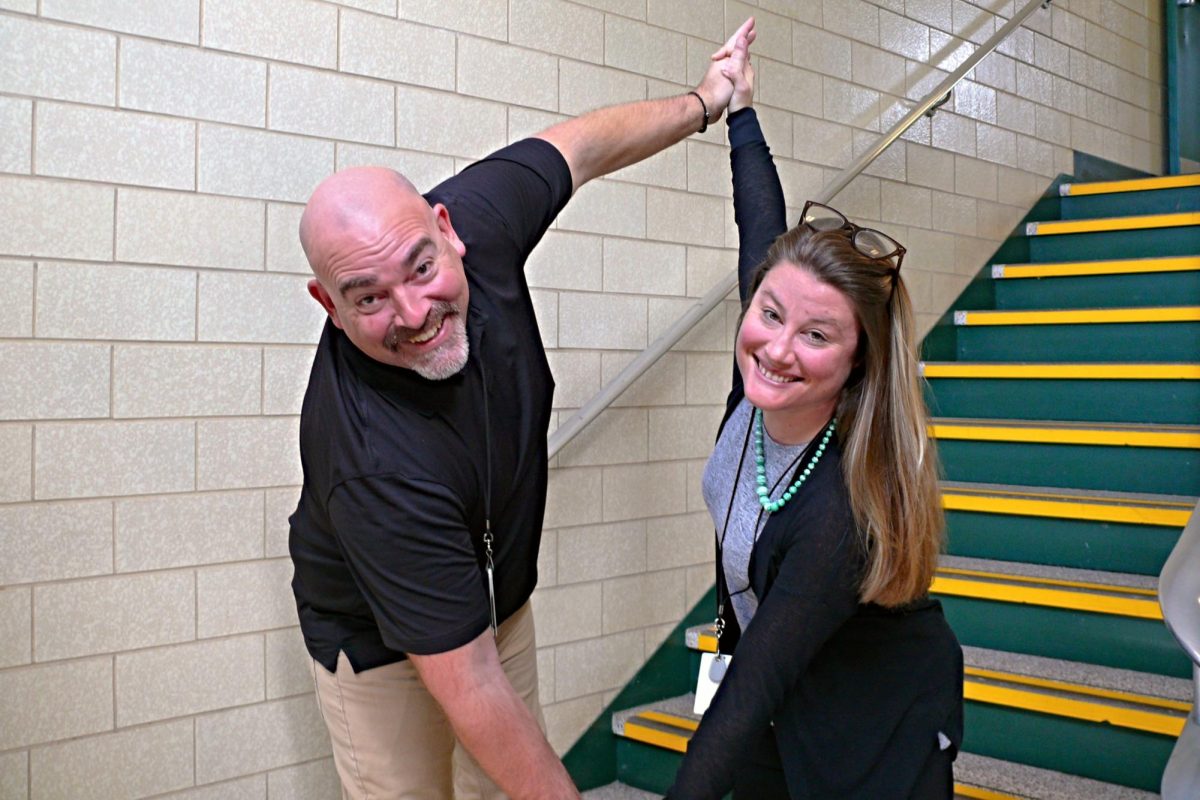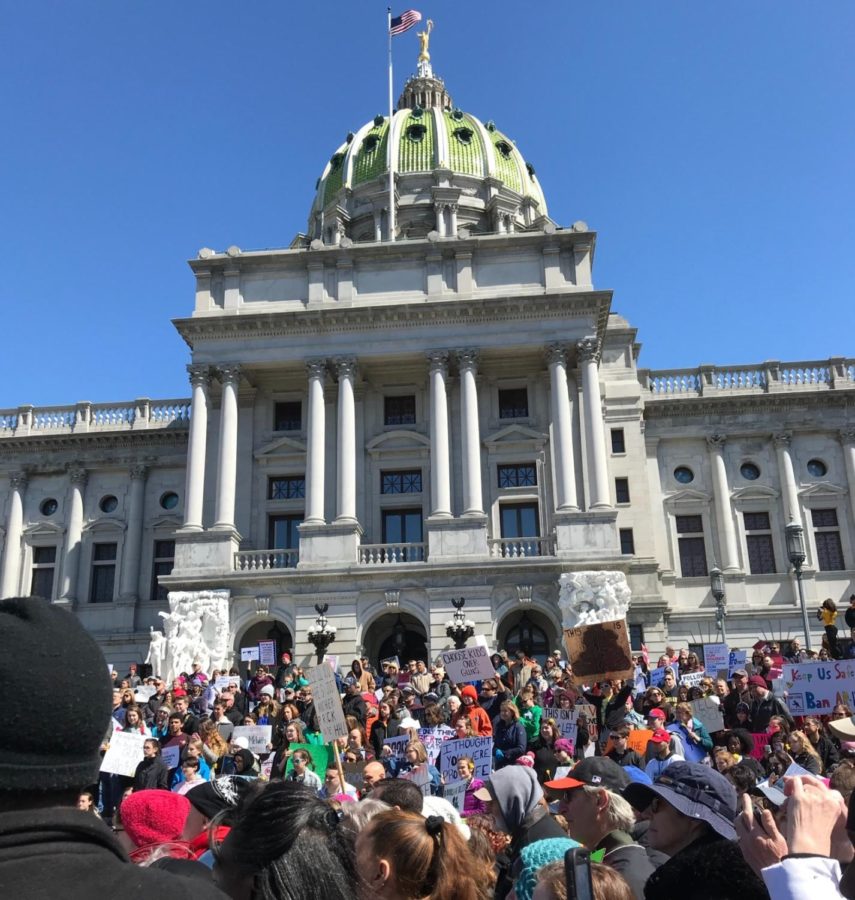Is protesting effective? (Editorial)
Protesters gather on the Capitol steps in Harrisburg to advocate for gun control during a March for Our Lives event on March 14.
On March 11, a crowd of protestors met on the Carlisle Courthouse steps. On March 14, students all over the country walked out of their schools armed with signs and solidarity. On March 24, thousands of Americans went to D.C., determined, devoted, and done with being pushed aside.
The examples above represent just a fraction of the movement spreading across the country. Americans are calling out for stricter gun laws, school security, and a safer country. However, protesters for any given movement have been active in America since its very beginning. But the same question is raised every time a cause gains momentum: Is protesting really effective?
The First Amendment to the Constitution states that “Congress shall make no law respecting… the right of the people peaceably to assemble, and to petition the Government for a redress of grievances.” This gives American citizens the right to protest peacefully as a way of having their voice heard in government—which is a key idea in democracy.
Furthermore, America itself was built on protest. The founding fathers were against the oppression they felt they faced in Britain, so they founded their own government. Our current democracy is its own proof that protest is effective, which is why this right is still in place for citizens today.
While the goal of most protests is to force lawmakers to take notice of the movement, one Harvard study showed that they are effective in a different aspect as well. The study examined the Tea Party movement and discovered patterns suggesting that protests increased the political activity of citizens toward their cause. A line from the study’s abstract reads, “We show that larger rallies caused an increase in turnout in favor of the Republicans in the 2010 Congressional elections, and increased the likelihood that incumbent Democratic representatives retire.” The study also demonstrated that large protests in their legislative districts made representatives more likely to vote in ways that supported the protests.
Though, according to student protestor Ava Wendelken, protests are only effective when the time is right. “Protesting doesn’t create the statement; it simply represents its importance. Because of this, protesting is only effective when the culture of the time may already be moving towards that change,” said Wendelken.
When asked about the direct effects of protests, she went on to say that “when used purposefully with other tools it can demonstrate the scale of an issue’s effect to lawmakers, create awareness among the general population, and impassion previous supporters while rallying new ones.”
On the other hand, an article from The Atlantic written by Moisés Naím claims street protests are ineffective, and believing in their effectiveness is a “dangerous illusion.” As Naím wrote, “Behind massive street demonstrations there is rarely a well-oiled and more-permanent organization capable of following up on protesters’ demands and undertaking the complex, face-to-face, and dull political work that produces real change in government.” The article expresses frustration with the lack of follow-through after most demonstrations and blames social media for Americans’ lack of political motivation.
Whether protests have a direct effect in either government or community is, to a certain extent, subjective, and opinions vary between movements. But, protesting is a privilege that Americans are lucky to have and will continue to utilize as culture evolves.
Disclaimer: Articles designated as “Editorial” represent the views and opinions of the author, not the 2017-2018 Periscope staff, CHS Administration, or the CHS student body.
Want to help the Herd? Please consider supporting the Periscope program. Your donation will support the student journalists of CHS and allow us to purchase equipment, send students to workshops/camps, and cover our annual website hosting costs.

Josetta Checkett is a freshman at CHS, and is the Junior Editor of the Perspectives section. She is excited to have the opportunity to improve her writing...


































































































